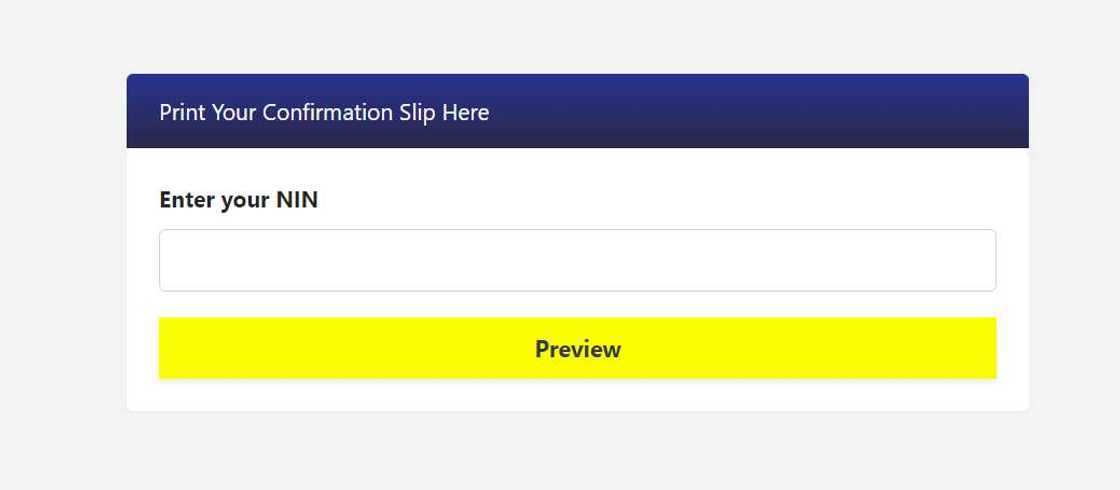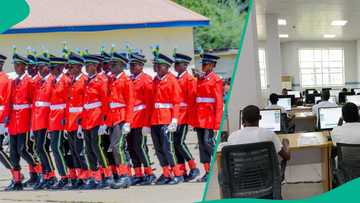Nigeria Police Academy school fees and training in 2026
The Nigeria Police Force is a security agency and law enforcement body in the Federal Republic of Nigeria. Those looking to join the country's police force can pass through the Nigeria Police Academy (POLAC), which trains cadets for officer positions (ASP). This article seeks to enlighten the general public about the Nigeria Police Academy school fees and training.

Source: UGC
TABLE OF CONTENTS
- Key takeaways
- The Nigeria Police Academy's history
- Nigeria Police Academy school fees and training requirements
- Do POLAC students pay school fees?
- What are the Nigeria Police Academy requirements?
- What courses are offered at the Nigeria Police Academy?
- How to apply for POLAC?
- How to get a POLAC invitation slip?
- Is the Nigeria Police Academy form out for 2026?
- How long is police academy training in Nigeria?
- What happens after graduating from the Nigeria Police Academy?
- What are the Nigeria Police Academy's school fees for freshers?
- How much is a POLAC form in 2026?
- What is the JAMB score for the Nigeria Police Academy?
- What is the height requirement for police training?
- Where do the police train in Nigeria?
- What is the quickest way to become a police officer in Nigeria?
- Can one become a constable without being a cadet in Nigeria?
Key takeaways
- POLAC is the only federal government-owned police academy in Nigeria.
- The academy's degree program has a minimum duration of five years.
- Four years are for academic study, and one year is for intensive mobile training.
- Feeding, accommodation, tuition, water, and electricity are provided and covered by the federal government.
- Cadets who complete the program are commissioned into the Nigeria Police Force as ASP II officers.
The Nigeria Police Academy's history
The Nigeria Police Academy (POLAC) was established in 1988 following a 1980s assessment by the British Government, which identified a need for improved police training. It began operations at temporary campuses in Challawa (Kano) and Kaduna in 1988.
The two campuses were later merged in 1996, and one permanent site, Wudil in Kano, was established. The academy was later upgraded to a degree-awarding institution in 2012.
Nigeria Police Academy school fees and training requirements
The Nigeria Police Academy admission is highly competitive. Prospective candidates undergo a rigorous selection process, including a written examination, physical and medical screenings, and an interview. Here is a look at the institution's fee structure, courses, and entry requirements.
Do POLAC students pay school fees?
The Nigeria Police Academy is free. Applicants only need to pay a ₦6,000 non-refundable application fee, which includes the ₦2,000 Post-UTME examination fee, to generate a Remita Retrieval Order (RRR) code for the online application form.
All applicants should procure the form once they confirm that they have met the JAMB cut-off mark and other requirements. The Nigeria Police Academy's JAMB cut-off mark for the 2025/2026 admission was 180.
What are the Nigeria Police Academy requirements?
These are the police academy, Kano, course requirements:
- Applicants must be Nigerians by birth.
- You must have a valid Nigerian citizenship.
- Applicants must be aged 16 to 21 at the time of application.
- Candidates must be free from any mental or physical disability.
- You must be medically, physically, and psychologically fit.
- Male applicants must be at least 167 cm (5' 6") tall, while females must be 162 cm (5' 4") tall.
- Females must have a chest circumference of less than 34 inches for those aged 21 and 22.
- Females must be unmarried and not pregnant at the time of admission.
- Candidates should have at least six credits on their SSCE conducted by NABTEB, NECO, or WAEC.
- The academy will not accept SSCE certificates or result statements from 2016 and earlier.
- An applicant must have a credit pass or higher in Mathematics, English, and subjects relevant to their course.
- You must obtain satisfactory scores in an interview, a written exam, psychological tests, and physical tests.
- One must have satisfactory JAMB UTME results, not less than 180, before procuring the application form.
- It is advisable to make the Nigeria Police Academy your first-choice institution when doing the JAMB registration.
- Admission into the academy is made on a quota basis, in which each state gets 12 slots.
The process involves:
- Apply online via the POLAC website, generate a RRR code, and submit the application form and guarantor form.
- A computer-based aptitude test is conducted for shortlisted candidates at the academy's ICT Centre in Wudil.
- Candidates who pass the aptitude test must attend a physical screening where they must present original documents, including educational qualifications, birth certificate, certificate of fitness, and indigene certificate.
- Those who pass the physical screening proceed to an automated medical screening.
- The final stage is an automated interview/selection exercise to determine successful candidates.
The required documents are:
- Primary School Leaving Certificate
- SSCE Results
- JAMB Result Slip
- Birth Certificate or Declaration of Age
- Local Government of Origin Certificate
- Letter of Identification or Guarantor's Form
- Certificate of Fitness from a government hospital
- Certificate of good character
- National Identity Card/Slip (NIN)
- Printout of the application acknowledgement slip
- Four passport photographs
Ensure you have all original and duplicate copies of the required documents for screening. Successful candidates will be contacted via SMS and email. The application and selection process is free, and applicants should be wary of fraudsters.

Read also
Activist slams Oyo govt for mandating teachers to pay N7,000 for appointment confirmation, promotion
What courses are offered at the Nigeria Police Academy?
The National Universities Commission (NUC) recognized the Nigeria Police Academy in Wudil, Kano, as the 37th federal university in 2012 and upgraded the academy to a degree-awarding institution. Academic activities for the pioneer faculties commenced in September of that same year. Below are the courses offered in the police academy, Wudil:
Faculty of Management and Social Science
This faculty trains students for bachelor's degrees under the following departments.
- Department of Sociology
- Department of Social Work
- Department of Psychology
- Department of Political Science
- Department of Economics
- Department of Banking & Finance
- Department of Accounting

Source: UGC
Faculty of Arts
Here is a look at the different departments under the academy's Faculty of Arts
- Department of Yoruba
- Department of Igbo
- Department of History & International Relations
- Department of Hausa
- Department of French
- Department of English Language
Faculty of Science and Technology
The Faculty of Science and Technology provides training for degrees under the following departments.
- Department of Physics
- Department of Mathematics
- Department of Computer Science
- Department of Chemistry
- Department of Biology
- Department of Biochemistry
Faculty of Law
The police academy also has the Faculty of Law, which provides training for a general law program. Every student who successfully completes their studies in the academy is awarded a bachelor's degree in law.
How to apply for POLAC?
The application is conducted online via the Nigeria Police Academy portal. Applicants can follow the steps below:
- Visit the official POLAC recruitment portal.
- Generate a Remita Retrieval Reference (RRR) code.
- Pay the non-refundable fee of ₦6,000 at any commercial bank in Nigeria.
- Use the RRR code to fill in the online application form on the admission portal.
- Upload scanned copies of your SSCE certificate, birth certificate (or declaration of age), and certificate of origin.
- Print your completed online application form.
- Print the guarantor form.
- Submit both printed forms in person at the academy in Wudil, Kano, when you go for the aptitude test.
How to get a POLAC invitation slip?
You can download and print your POLAC invitation slip online. Follow these steps:
- Open the official POLAC admission portal.
- On the page's right side, click "Print slip".
- Enter your National Identification Number (NIN).
- Click "Preview" to print your confirmation slip.

Source: UGC
You cannot participate in the screening without this printed slip and other required documents. So, print it as soon as it's available and arrive on time for your scheduled date and time. The admission process is free; avoid criminals offering to help for a fee.
Is the Nigeria Police Academy form out for 2026?
There is no online form for the Nigeria police recruitment 2025/2026, as the application period for this academic session has already concluded, and admissions for the 12th Regular Course were in late 2025.
The application period generally runs from around late July to early September each year. After the application period closes, the screening and selection processes (including CBT, physical, medical, and interviews) take place in the following months.
The academy has announced that the next admissions cycle will be for the 2026/2027 academic session, and interested applicants should monitor the official website for updates.
How long is police academy training in Nigeria?
Police academy training in Nigeria varies: degree programs at the Nigeria Police Academy (POLAC) take 5 years for a Bachelor's degree, leading to ASP rank.
Meanwhile, inspectorate/other cadet training (like ASP/Inspector) at Police Academy Kano is about 18 months (72 weeks), split into basic, intermediate, and advanced stages, focusing on academic and combat skills.
So, the length of your police academy training depends on whether you are pursuing a degree (longer) or a direct entry/inspectorate role (shorter, structured training).
What happens after graduating from the Nigeria Police Academy?
After graduating from the Nigeria Police Academy, cadets are commissioned as Assistant Superintendents of Police (ASPs) and begin a one-year attachment period in state commands to gain practical experience. This attachment includes basic, intermediate, and advanced training stages with modules on police duties, law, and drills, which they must complete before becoming fully independent officers.
What are the Nigeria Police Academy's school fees for freshers?
There are no school fees for degree freshers at POLAC, as it's a federal institution that combines academic and police training; however, you pay for the Post-UTME form (around ₦6,000 total for screening) and other small fees for documents like medicals, but once admitted, training and upkeep are free, leading to a commission as an ASP.
How much is a POLAC form in 2026?
The Nigeria Police Academy Post-UTME form usually costs around ₦6,000, payable via Remita on the POLAC portal.
What is the JAMB score for the Nigeria Police Academy?
The Nigeria Police Academy's general JAMB cut-off score is 180 marks, but you must select POLAC as your first-choice institution in your JAMB registration. Higher scores are often preferred as POLAC admission is a competitive selection process.
What is the height requirement for police training?
One must have a height of not less than 5 feet 6 inches (167 cm) for males and 5 feet 4 inches (162 cm) for women.
Where do the police train in Nigeria?
Here is a list of police academies in Nigeria:
- Nigeria Police Academy, Wudil, Kano State: A degree-awarding institution combined with police training.
- Police College, Ikeja, Lagos State: A long-standing institution that began training recruits in 1939.
- Police College, Oji River, Enugu State: A key training facility located in Enugu State.
- Police College, Kaduna, Kaduna State: A primary training college situated in Kaduna State.
- Police Training Staff College, Jos, Plateau State: A center for training police staff located in Jos.
- Police Detective College, Enugu State: A specialised college for detective training.
- College of Computer Studies, Abeokuta, Ogun State: A specialised institution for police computer training.
- Police Mobile Force Training School, Ila-Orangun, Osun State: A Police Mobile Force school in Osun State.
- Police Mobile Force Training School, Gwoza, Borno State: A Police Mobile Force school in Borno State.
- Police Mobile Force Training School, Guzuo, Southwest of Abuja: A Police Mobile Force in southwest Abuja.
- Counter Terrorism (CTU) Training School, Nonwa Tai, Rivers State: A training facility in Rivers State.
- Police Dogs Service Training Centre: A training centre for police dogs.
- Mounted Training Centre: A training centre for mounted police units.

Read also
Petroleum sector reforms: Nigeria gets continental recognition as Pan African Parliament speaks
What is the quickest way to become a police officer in Nigeria?
The quickest way to become a police officer in Nigeria is to apply for the Constable or Cadet Inspector roles, as they have a shorter training period compared to the degree-based Cadet ASP program.
Can one become a constable without being a cadet in Nigeria?
You can become a Police Constable in Nigeria without being a cadet; the Constable entry is the standard grassroots path for those with O'Level (WAEC/NECO) qualifications, while Cadet entry is a separate, direct-entry route for graduates (like Inspectors or Officers).
Therefore, constables start with basic requirements like SSCE, height, fitness, and age, not necessarily cadet training. Many officers with higher degrees start as constables. So don't feel you need a cadet program to join at the entry level.
If you want to be a constable:
- You need an O'Level Certificate (WAEC/NECO/NABTEB) with at least five credits, including English and Maths, according to the Police Service Commission guidelines.
- You should be between 18-25 years old, with specific height requirements (1.67m for men, 1.63m for women).
- You must be mentally and physically fit, a Nigerian citizen, and have no criminal record.
- Apply during open recruitment drives announced by the Nigeria Police Force (NPF).
- Go through physical and credential screening, and often a Computer-Based Test (CBT).
- Attend training at a Police College (not necessarily the Academy) to become a Constable.
Knowing the Nigeria Police Academy school fees and training is crucial for financial planning, avoiding scams, and preparing for the rigorous, federally sponsored program. The training itself is provided free of charge, but applicants must cover initial application and screening logistics.
Legit.ng published an article about universities in Nigeria that offer courses in international relations. These courses are sometimes called international studies or international affairs.
These courses are mainly offered in the faculties or departments of humanities or social sciences. They train students on matters related to politics and government. Take a look at this post to find out some of these universities that offer international relations in Nigeria.
Source: Legit.ng

Jackline Wangare (Lifestyle writer) Jackline Simwa is a content writer at Legit.ng, where she has worked since mid-2021. She tackles diverse topics, including finance, entertainment, sports, and lifestyle. Previously, she worked at The Campanile by Kenyatta University. She has more than five years in writing. Jackline graduated with a Bachelor’s degree in Economics (2019) and a Diploma in Marketing (2015) from Kenyatta University. In 2023, Jackline finished the AFP course on Digital Investigation Techniques and Google News Initiative course in 2024. Email: simwajackie2022@gmail.com.

Peris Walubengo (Lifestyle writer) Peris Walubengo has vast experience in search engine optimization through digital content generation, research, editing, and proofreading. She joined Legit.ng in April 2022 and completed the AFP course on Digital Investigation Techniques. You can email her at perisrodah254@gmail.com.








